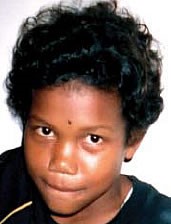Temiar in Malaysia

Photo Source:
Copyrighted © 2026
Southeast Asia Link - SEALINK All rights reserved. Used with permission |
Send Joshua Project a map of this people group.
|
| People Name: | Temiar |
| Country: | Malaysia |
| 10/40 Window: | Yes |
| Population: | 35,000 |
| World Population: | 35,000 |
| Primary Language: | Temiar |
| Primary Religion: | Ethnic Religions |
| Christian Adherents: | 7.00 % |
| Evangelicals: | 0.60 % |
| Scripture: | Portions |
| Ministry Resources: | Yes |
| Jesus Film: | No |
| Audio Recordings: | No |
| People Cluster: | West Malaysia Indigenous |
| Affinity Bloc: | Malay Peoples |
| Progress Level: |
|
Introduction / History
The Temiar are among the most publicized of the nineteen Orang Asli people groups in Peninsular Malaysia. They are officially classified under the Senoi subgroup and are the fourth largest of the Orang Asli groups.
The Malay people call them sakai (a disparaging Malay word for slave). Temiar settlements can be found in the states of Perak, Kelantan, Pahang, Selangor, and Negeri Sembilan. Many Temiar live on the fringes of the rainforest, while some live in towns.
What Are Their Lives Like?
Temiars live in an extended family social structure. They used to live in longhouses, but today most have individual houses made of split bamboo. Each village or community has a headman or chief, which is based on heredity. Their staple food is tapioca, which they cultivate around their villages. They also collect fruit from the forest and hunt small mammals and fish. They harvest rattan and bamboo that have multiple uses for the Temiar community. Others work on plantations where they grow tapioca and sometimes maize or hill rice. They used to grow their own fruit, vegetables, tobacco, and medicinal herbs, but now they buy these products.
Temiar life is greatly dependent on bamboo, which is used for building houses, receptacles, food (bamboo shoots), musical instruments, and for weapons. Nowadays, when they hunt animals, they use blowpipes and spears, along with various traps and nooses. The Temiar are easygoing, peaceful people. There appears to be an absence of conflict or violence within their society. Although the Temiar have been known to take revenge against outsiders, many of their cultural beliefs help promote non-violence. By the time they become adults, they have learned to feel anxious that their actions might cause someone else harm.
What Are Their Beliefs?
Traditionally animists, the Temiar have some vague idea of a supreme being but like many Orang Asli they have little confidence in an afterlife. They aim to live in harmony with nature in this life through the intercession of the several types of medicine men or spirit mediums.
Temiar spirit mediums often hold night ceremonies where spirit guides are evoked amidst much singing, dancing, and trances. In a trance, possession by the familiar "tiger spirit" enables the medium to cure somatic or psychological sickness and to ensure the fortunes of his group.
Dreams play an important role in the daily lives of the Temiar. They consider dreams to be a link between the natural world and the spirit world. They believe that a dream is a mystical experience in which the person's soul wanders about the forests in search of guidance. Even their dances and songs are dream inspired.
What Are Their Needs?
Though highly publicized, the Temiar remain poor and often lack adequate medical care.
Prayer Points
Pray for those who will assist the Temiar in their physical needs and in the transitions they must face in the modern world.
Pray for local believers who will relate and respond to the needs of these people.
Pray for the Holy Spirit to move powerfully in their communities.